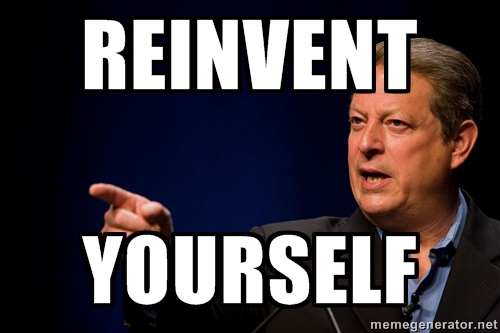I’ve reinvented myself before – from a nuclear engineer to a strategist, from a submariner to an industry analyst; I’m right now in the midst of another personal reinvention. My departure from Gartner is the most visible sign of my reinvention effort, and that was really hard to do.
As another part of my personal reinvention, this weekend I was in Boston for my monthly “intensive” at Northeastern. I’m working on a doctorate in law and policy which I’ll finish next June.
A year ago, I decided it was past time to reinvent myself, and pursuing a doctorate would help me to shift gears. My masters degree in international studies had certainly helped me move from engineer to strategist. My doctorate is helping me to focus on new research into intractable policy issues raised by disruptive technology. Not wanting to spend six years on a PhD, I found the two year program in law and policy at Northeastern fit both my interest and my goals. My research is specifically focused on the impact of disruptive technology on the process of making public policy.
My interest in the intersection of technology and public policy dates back to my early years at Gartner. In 2000, with the encouragement of Bill Malik and Richard Hunter, I founded the Technology and Public Policy research community. About 20 analysts participated and we produced a large number of special reports. However, in 2002 with Enron and other technology-enabled business models falling to scandal, our attention turned heavily to risk management and compliance. With regulatory proliferation and risk management demanding so much analyst attention, the strategic intersection of technology and public policy received less research attention at Gartner.
However, in the last two years that began to change. Gartner identified the “nexus of forces,” the convergence of social, mobile, analytics and cloud (SMAC) technology drivers was rapidly introducing new business models, and a new war has emerged over the control of information between individuals armed with social and mobile technologies, governments and companies armed with big data analytics, and criminals taking advantage of vulnerabilities. Gartner analyst Frank Buytendijk, along with his colleague Jorge Lopez, have addressed this struggle in the Digitopia scenario.
 Reinventing me, I am building on my strategy, governance, risk management and compliance expertise with research into the impact of disruptive technologies on the core issue of how we actually govern ourselves as societies. We’ve seen over the last few years how new technologies have radically transformed whole industries — the recording industry and journalism have been radically transformed. Traditional B2C and B2B commerce models are under tremendous pressure from digital business models of Amazon and Alibaba. With new digital businesses ike Uber and AirBnB, transportation and hospitality industries are transforming rapidly.
Reinventing me, I am building on my strategy, governance, risk management and compliance expertise with research into the impact of disruptive technologies on the core issue of how we actually govern ourselves as societies. We’ve seen over the last few years how new technologies have radically transformed whole industries — the recording industry and journalism have been radically transformed. Traditional B2C and B2B commerce models are under tremendous pressure from digital business models of Amazon and Alibaba. With new digital businesses ike Uber and AirBnB, transportation and hospitality industries are transforming rapidly.
With such radical transformation of so many industries, there is every reason to suspect that government and other key players in the public policy process will themselves be disintermediated as digital transformation overtakes the policy industry. Failure to manage the risks of this transformation is a risk too great to ignore.
